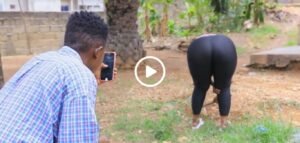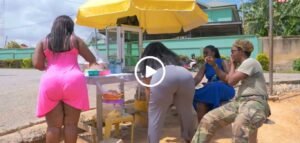
The city streets, usually buzzing with the daily hum of life, had turned into a battleground. The air was thick with tension as crowds of people filled the avenues, their voices united in a single, resounding demand for change. Signs, banners, and fists were raised high as a sea of people pushed back against the police force. The protest had been growing for weeks, and today, the breaking point was near.
Lungile found herself at the heart of the storm. She wasn’t one to march, to hold signs, or to shout at the top of her lungs. But today, something inside her had shifted. The injustice, the corruption, the growing gap between the powerful and the powerless—it had all reached a boiling point. And now, here she was, shoulder to shoulder with strangers, marching towards the government buildings in the city center.
All around her, the sounds of shouting, chanting, and the rhythmic beat of feet against the pavement blended together. But there was an underlying edge to the energy. Everyone knew that today’s march was different. The authorities had made it clear that they would no longer tolerate the disruptions. Tear gas, water cannons, and rubber bullets had been used in the previous weeks. Today, the crowd sensed, could escalate further.
The media vans lined the outskirts of the protest. News stations like the BBC and local outlets were here to capture every moment. Lungile knew that the world was watching. But no amount of media attention seemed to stop the government from cracking down on the movement. It felt like the country was reaching a tipping point, and no one knew which way things would fall.
As the crowd approached the barricades set up by the police, the chanting grew louder. Lungile could feel the heat of bodies pressing in around her. Some were angry, others scared. Some had come out of pure frustration, while others felt this was their last hope.
Suddenly, the tension snapped.
A loud bang echoed through the streets. It wasn’t clear where it came from—whether it was a tear gas canister being fired, or something worse. Panic swept through the crowd like a wave. Lungile felt the surge of bodies pushing against her, people scrambling to get away from the front lines. She tried to stay calm, but the fear was infectious.
Then, chaos erupted.
The police moved in quickly, forming lines, their shields raised high as they advanced on the crowd. Some protesters began to throw rocks, bottles, anything they could get their hands on. Lungile’s heart raced. She wasn’t prepared for this. The march was supposed to be peaceful, but now, the air was filled with the sound of violence.
In the middle of the fray, a figure caught her attention. A man, completely exposed, had broken through the crowd, running towards the police with nothing but desperation in his eyes. He was shirtless, his body glistening with sweat and dirt, arms flailing as he screamed something unintelligible. His face was a mask of pain and anger. It was as if he had lost everything, and now, with nothing left to lose, he was charging towards the very force that oppressed him.
Lungile couldn’t take her eyes off him.
The man collided with a police officer, his hands reaching out in a wild attempt to wrestle away the officer’s shield. For a moment, it looked as though he might break through, but then, the weight of the force fell upon him. Several officers grabbed him, forcing him to the ground. His cries were drowned out by the shouts of the crowd and the pounding of boots on pavement.
In a split second, Lungile saw the truth of the moment—this wasn’t just about one man or one protest. It was about years, decades, of pain, frustration, and inequality. That man, stripped of everything, had become the embodiment of a nation’s suffering. His desperate run towards the line of officers wasn’t just an act of rebellion—it was a cry for help, a plea for the world to notice what was happening in the streets.
As the officers wrestled him to the ground, pinning his arms behind his back, the BBC cameras zoomed in. The man, now fully subdued, was handcuffed, his body limp as the officers dragged him to the side of the street. The red logo of the news channel flashed in the corner of the screen, broadcasting his defeat to the world.
Lungile’s heart pounded in her chest. She wanted to run to him, to help, but fear held her back. The police had begun to move into the crowd, breaking up the protest with force. Tear gas canisters hissed as they were deployed, and the crowd scattered in every direction.
Lungile turned to run, her eyes stinging from the gas, but the image of that man—broken, desperate—was burned into her mind. As she ran down the side streets, away from the violence, she knew that this was far from over.
The protest might have been dispersed, but the fight had only just begun.
Tomorrow, there would be more. More marches, more arrests, more battles in the streets. And maybe, just maybe, the world would finally listen. Maybe the man who had risked everything today wouldn’t be forgotten. Perhaps his act of defiance, captured by the cameras and broadcast to millions, would spark the change they all so desperately needed.
Lungile wiped the tears from her eyes as she made her way home. Tomorrow, she knew, she would be back. Because for people like her, there was no other choice. The fight for justice wasn’t over, and it wouldn’t be until everyone could walk the streets without fear.




